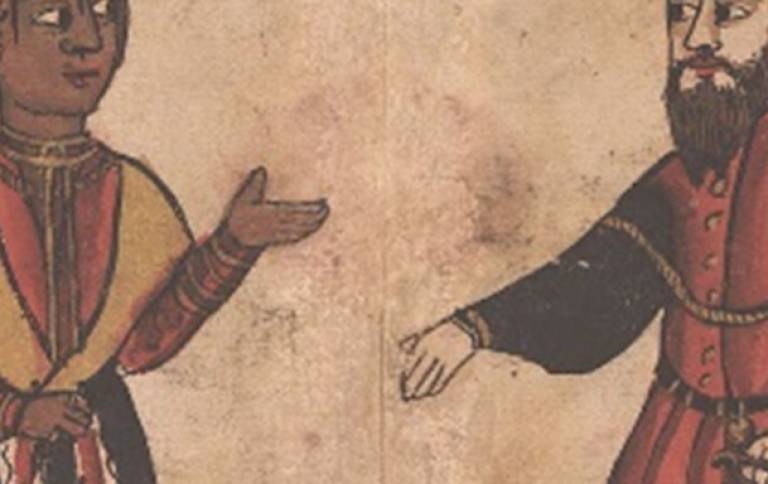60 Seconds With... Professor Zoltán Biedermann
15 February 2024
Professor Zoltán Biedermann reflects on his extensive research journey so far, as he prepares for his Inaugural Lecture 'The Global Paradox: on the Legacies and Liabilities of Early Modern Worldmaking'. Taking place 1st May 2024...

Professor Zoltan Biedermann Inaugural Lecture
Tell us a little about your research…
I am writing a book on the origins of globalization, focusing on the contributions made by people in Africa, the Americas, and Asia-Oceania. It will be a bottom-up history of how humans in the 15th-16th centuries began to organize politically on a planetary scale, but also a top-down history of how some humans decided to take control of the means of representation that came to underpin globality. Renaissance Europe relied on other cultures for their worldmaking, but then claimed the globe for itself. It created global maps and global Empires. We’re still reeling from that, but I am hopeful that historians can help rebalance things.
Why is your research important?
I work with Portuguese, Spanish, Italian, French, and other European sources to throw light on developments in societies that did not create comparable written archives. That is inherently a high-risk enterprise. It can come across as Eurocentric, but when done right it can also help people in the Global South come together around shared pasts to build new partnerships. The most important part is when South-South conversations start to emerge that don’t depend on scholars like me anymore.
What inspires you in your work?
I take inspiration from two very different urban tribes: historians who find truth in the archive (as I was trained to); and scholars, artists, and activists who dare to query the past via the present (as I am learning to). Aiming to empower my readers more than myself is, I think, what I am trying to achieve.
What has been your most memorable career moment so far?
Travelling to Puerto Rico, Sri Lanka, and India in quick succession in 2023, I realized how I could help students connect across deep cultural divides – and, even more importantly, I realized the potential of taking myself out of the frame eventually and letting them talk to each other directly.
What passions/hobbies do you have outside of work?
My favourite places are: Hampstead Heath for walks; Wigmore Hall for music; Budapest for cake; and our couch for family time and poetry.
What book is currently on your bedside table?
Ruth Ozeki’s A Tale for the Time Being. It is a beautifully crafted tale, both lyrical and philosophical, of people connecting across the oceans in a time of civilizational and ecological crisis.
 Close
Close

